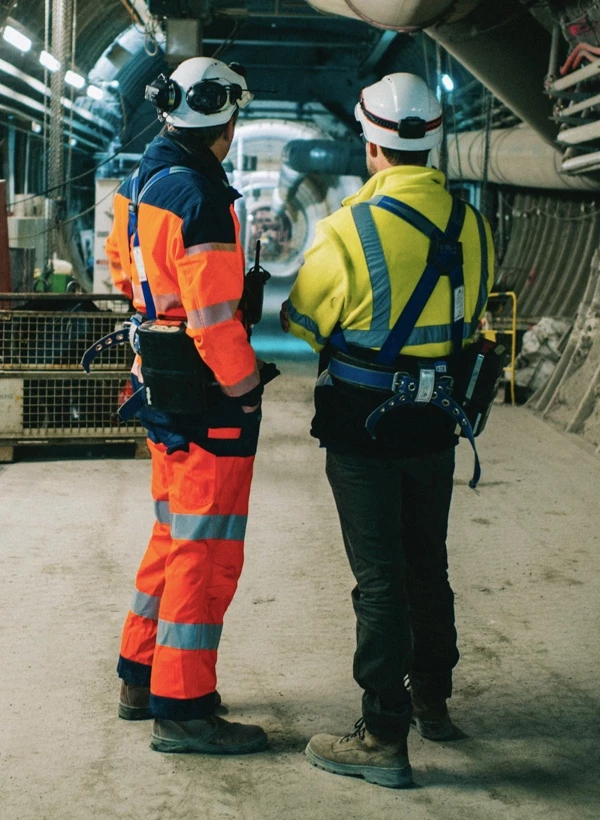
On the eve of WNE 2021, 12 associations representing some of the biggest nuclear industries of the world have issued a joint statement calling on governments everywhere to accelerate action toward combatting climate change by recognising and deploying the full potential of nuclear energy in the worldwide energy transition.
Find below thestatement signed by the 12 associations:
The latest reports from the Intergovernmental Panel on Climate Change (IPCC) once again remind us of the growing urgency of tackling climate change. The Glasgow COP26 summit emphasizes the need to bring parties together to accelerate action towards the goals of the Paris Agreement and the United Nations Framework Convention on Climate Change. We must all strive to reach those objectives. Decisions to invest in low carbon energies must be made without delay. We, as associations representing the nuclear industry nationally and globally, reaffirm the pivotal role of peaceful nuclear power in the fight against global warming.
International organizations such as the International Energy Agency (IEA) and the Intergovernmental Panel on Climate Change (IPCC) confirm that nuclear energy is essential in confronting climate change. The success in achieving our sustainable development goals will indeed require all low-carbon energies to transform our economies. Societies must undergo radical changes in order to do so as 67% of power generation still depends on fossil fuels[1]. The International Energy Agency (IEA) reminds us that clean energy investment would need to double in the 2020s to maintain temperatures well below a 2°C rise and more than triple in order to keep the door open for a 1.5°C stabilization[2]. Hence, all clean energy technologies are needed if we are to address the challenge of global warming, and the nuclear industry is undoubtedly a key partner for a low carbon society.
Over the last 50 years, the production of 82,000 TWh of electricity thanks to nuclear power has avoided around 70 Gt of CO2 emissions at a global level, meaning that the CO2 emissions from the electricity sector would have been 20% larger in the absence of nuclear power.
By 2040, the IEA estimates that global electricity demand would more than double under its net zero scenario. This increase requires the deployment of balanced and diversified electricity systems. Nuclear power positively contributes to building a low-carbon resilient energy infrastructure that provides safe, reliable, dispatchable and competitive baseload supply. Our industry is needed to support economic stability, security of supply and the fight against global warming. Nuclear complements other low-carbon technologies such as wind, solar and hydroelectric power generation. It allows for stability and security of grids while reducing significantly the cost of storage or gas backups a system with lots of intermittent renewables would require. New technologies could expand nuclear's current role in providing low-carbon heat. Joining forces with the hydrogen industry is another great opportunity to address the energy and environmental challenges we are facing.
In this regard, Green Deal strategies must be guided by a scientific-based realistic approach. Political leaders worldwide should confirm the role of nuclear power, alongside other clean energies, to reach carbon neutrality as quickly as possible. Long-term political commitment is required to accelerate and intensify the actions and investments needed to secure the contribution of nuclear energy to a low-carbon and growing electrified world. Access to affordable finance is needed, including through Green Finance schemes. Europe should help pave the way to this low carbon society by including nuclear into the EU Taxonomy.
The excellence of our industry gives us the full capability to contribute to combatting climate change: high-end competences; advanced and innovative technologies; a strong and long-lasting experience with constant focus on safety. Currently operating reactors are a reliable source for providing low carbon electricity generation and we should maximise the contribution of this resource by fully utilizing opportunities for Long-Term Operations. In order to sustainably strengthen this asset, it is essential to build new reactors. Furthermore, we are engaged in a continuous innovation process, and we undertake substantial efforts in research and development to shape the future of nuclear, including generation III and IV reactors, Small Modular Reactors (SMRs) and Advanced Reactors. Although proven spent fuel industrial recycling solutions exist, innovation is contributing to improving its performance and the waste management processes, including waste storage solutions. We also wish to underline the fact that the high energy density of nuclear power reduces the land required to produce electricity to a significantly lower level than other energy sources, thus helping protect biodiversity. Our industry is able and committed to support actions to meet environmental objectives.
Moreover, nuclear energy provides a substantial positive economic impact. Companies create a significant amount of high-skilled, high-paid and mostly local jobs for an extended period of time. This highlights the importance of investing in and maintaining human capital to support competences and the excellence of the sector. The use of nuclear power results in considerable economic benefits that stem from sizeable spill-over investment into the local, regional and national economies.
By this statement, we call for recognizing the full potential of nuclear energy in the worldwide energy transition. Thus, we ask political leaders in the world to put in place the policies and the market mechanisms that will help accelerate the deployment of new nuclear projects, and to support research and development in nuclear technology.
Our industry is ready to play its role in tackling the climate change challenge. Net zero by 2050 needs nuclear energy.
Signed by CNA (Canada), EPRI (USA), FinNuclear (Finland), Foro Nuclear (Spain), GIFEN (France), JAIF (Japan), KAIF (Korea), NEI (USA), NIA (UK), NIC (USA), Romatom (Romania) and WNA (World Nuclear Association).
[1] Source : International Energy Agency, https://www.iea.org/fuels-and-technologies/electricity
[2] Source : executive summary of World Energy Investment 2021
